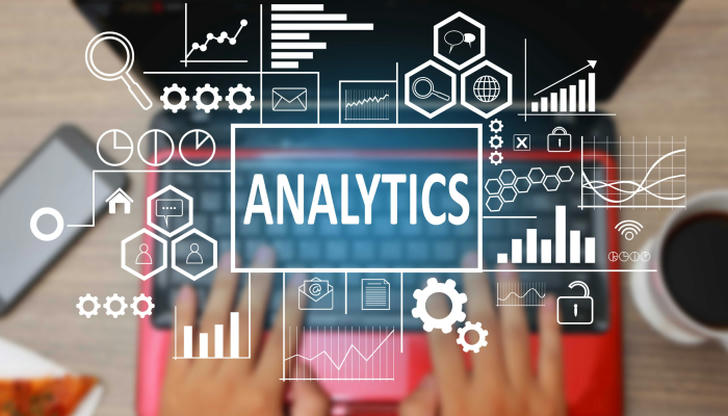Data Analysis Course: A Must-Have Course to Enter the Data-Driven World
With the continuous development of digitalization and informatization, data analysis has become a core skill in almost all industries. From business decision-making to scientific research, from marketing to health care, data analysis is everywhere. If you want to enter this booming field, learning data analysis courses is undoubtedly a good choice. So, what are the advantages of data analysis courses? How to find a suitable course? What are the free learning resources? These questions will be answered one by one in this article.

Advantages of Data Analysis Courses
1. Cultivate data-driven thinking
Data analysis is not just about learning how to use tools and software, but more about cultivating a data-driven way of thinking. In the data analysis course, you will learn how to extract valuable information from a large amount of data and how to transform data into decision support tools. This way of thinking is a very valuable ability for any industry and position. It can not only help you make more informed decisions at work, but also enhance your ability to analyze and solve problems.
2. Broad employment prospects
With the rise of big data, more and more companies are actively looking for talents who can process and analyze data. Whether it is traditional finance, manufacturing, or emerging Internet, e-commerce, and medical industries, the demand for data analysts is increasing sharply. According to industry reports, data analysts have become one of the most popular and in-demand positions. By studying data analysis courses, you can open a door to a variety of high-paying careers and become an indispensable technical talent in various industries.
3. Applicability in multiple fields
Data analysis is not limited to technical positions, and almost all industries need data analysts. You can find your place in marketing, customer service, financial analysis, medical research, retail, public policy and many other fields. Studying data analysis courses can not only enable you to master analytical skills, but also help you understand the application of data in various industries and broaden your career path.
4. Practicality and transferability of skills
Data analysis courses not only teach specific skills and tools, but also cultivate your problem-solving ability. These skills are not limited to the field of data analysis, but also require analytical skills in many other career fields. For example, positions such as project managers, product managers, and market analysts all require certain data analysis capabilities. Therefore, studying data analysis courses not only learns technology, but also acquires a set of general skills that can be flexibly applied in multiple career fields.

How to find a data analysis course
1. Choose a learning path that suits you
There are many learning paths for data analysis courses, and choosing the right course is crucial. You can choose online courses, self-study books, or even offline training. The specific choice depends on your personal learning preferences, schedule, and career plan.
Online courses: Nowadays, many well-known online platforms such as Coursera, edX, Udemy, etc. offer courses on data analysis. These courses are often taught by top universities and industry experts, and the content covers all aspects from entry to advanced. You can choose the right course according to your level and needs.
Self-study books: If you like systematic learning, you can choose some classic books to help you get started and learn in depth. For example, books such as "Introduction to Data Science", "Python Data Analysis", and "R Language Practice" are all good books in the field of data analysis.
Offline training courses: For learners who want to receive face-to-face teaching and guidance from mentors, attending offline training courses is also a good choice. Many educational institutions and professional training centers offer courses related to data analysis, and the learning format is more interactive, suitable for those who like to concentrate and quickly master skills.
2. Choose the right tools and technologies
There are many different tools and technologies for data analysis, such as Excel, Python, R, SQL, Tableau, Power BI, etc. When choosing a course, it is important to understand the applicable areas of each tool. For example:
Excel: Suitable for beginners, it can be used for basic data cleaning, analysis and visualization. Python: It is one of the most popular programming languages at present, with powerful data processing and analysis libraries such as Pandas, NumPy, etc., suitable for learners who need to handle complex data analysis tasks. R language: Designed for statistical analysis, it is suitable for learners who need in-depth statistical modeling and data visualization. SQL: Widely used for data storage, query and management, it is one of the necessary skills for analysts. Tableau/Power BI: This type of visualization tool is suitable for those who want to quickly create reports and data visualization. Choosing the right tools and courses according to your career needs will make your learning more efficient.
3. Evaluate the quality of the course
When choosing a course, in addition to considering factors such as price and time, you should also evaluate the quality of the course. Some high-quality courses are usually provided by industry experts or well-known universities, and the course content is more systematic and comprehensive. In addition, some course platforms will provide course evaluations and student feedback, which can be used to understand the actual effect of the course. Make sure that the course not only teaches you technology, but also helps you understand the principles and methods behind it, which is crucial for your future career development.

Opportunities for free data analysis courses
For learners with limited budgets, free data analysis courses are a great option. Many platforms and institutions offer high-quality free courses to help you lay a solid foundation.
1. Coursera
Coursera is a world-renowned online learning platform that offers many free courses from well-known universities and companies. Although most courses are charged, you can apply for an "audit" course, participate in the learning for free, and obtain a certificate through the learning content. For example, Johns Hopkins University and the University of Michigan offer some free data analysis courses covering Python, R language, statistics, and more.
2. edX
edX is another well-known online learning platform that also offers many free data analysis courses. Courses from top universities such as Harvard University and MIT are free for learners to participate in, and only certificates are charged. Through these courses, you can get access to basic and advanced knowledge in related fields such as data science, data analysis, and artificial intelligence.
3. Khan Academy
Khan Academy offers many basic mathematics and statistics courses, which are very helpful for learning data analysis. For example, courses on probability theory and statistics can help you lay a solid mathematical foundation and prepare for subsequent data analysis courses.
4. YouTube and blogs
In addition to online education platforms, YouTube and some blogs are also good places to learn data analysis. Many senior data analysts and data scientists share free tutorials and practical experience on these platforms. Through these resources, you can learn about the latest trends in the industry and learn some practical analysis skills without spending any money.

Explore data analysis career opportunities
The career prospects of data analysts are broad, and more and more opportunities are found not only in traditional industries, but also in emerging technology industries. The following are some common career directions:
1. Data analyst
Data analyst is the most direct career path. The main responsibility is to clean and analyze data through various data tools and technologies to provide decision support for the company. The data that data analysts need to process include sales data, user behavior data, financial data, etc. This position has high technical requirements, but usually does not require complex code writing.
2. Data scientist
Data scientist is an advanced position in data analysis. In addition to analyzing data, it is also necessary to build data models and perform predictive analysis. This position requires deep knowledge of mathematics and statistics, as well as certain programming skills. Data scientists usually use technologies such as machine learning and deep learning to solve more complex business problems.
3. Business Analyst
Business analysts focus on how to drive business decisions through data. They not only analyze data, but also focus on how to transform data into specific business strategies. Business analysts usually need strong communication skills and can convey complex analysis results to the business team in a concise and easy-to-understand way.
4. Data Visualization Expert
Data visualization experts focus on transforming complex data results into easy-to-understand charts and graphs. This type of work requires good data analysis skills and a certain sense of art, and can design intuitive and clear visualizations to help companies quickly understand the meaning behind the data.
Conclusion
Data analysis is a basic skill across industries and fields. Learning data analysis courses can not only open the door to a variety of career opportunities for you, but also give you a head start in the data-driven world. From course selection to career development, mastering the core skills of data analysis will bring you more possibilities. By studying hard, you can not only find an ideal job, but also continue to advance in the data world and become an indispensable member of the industry.
